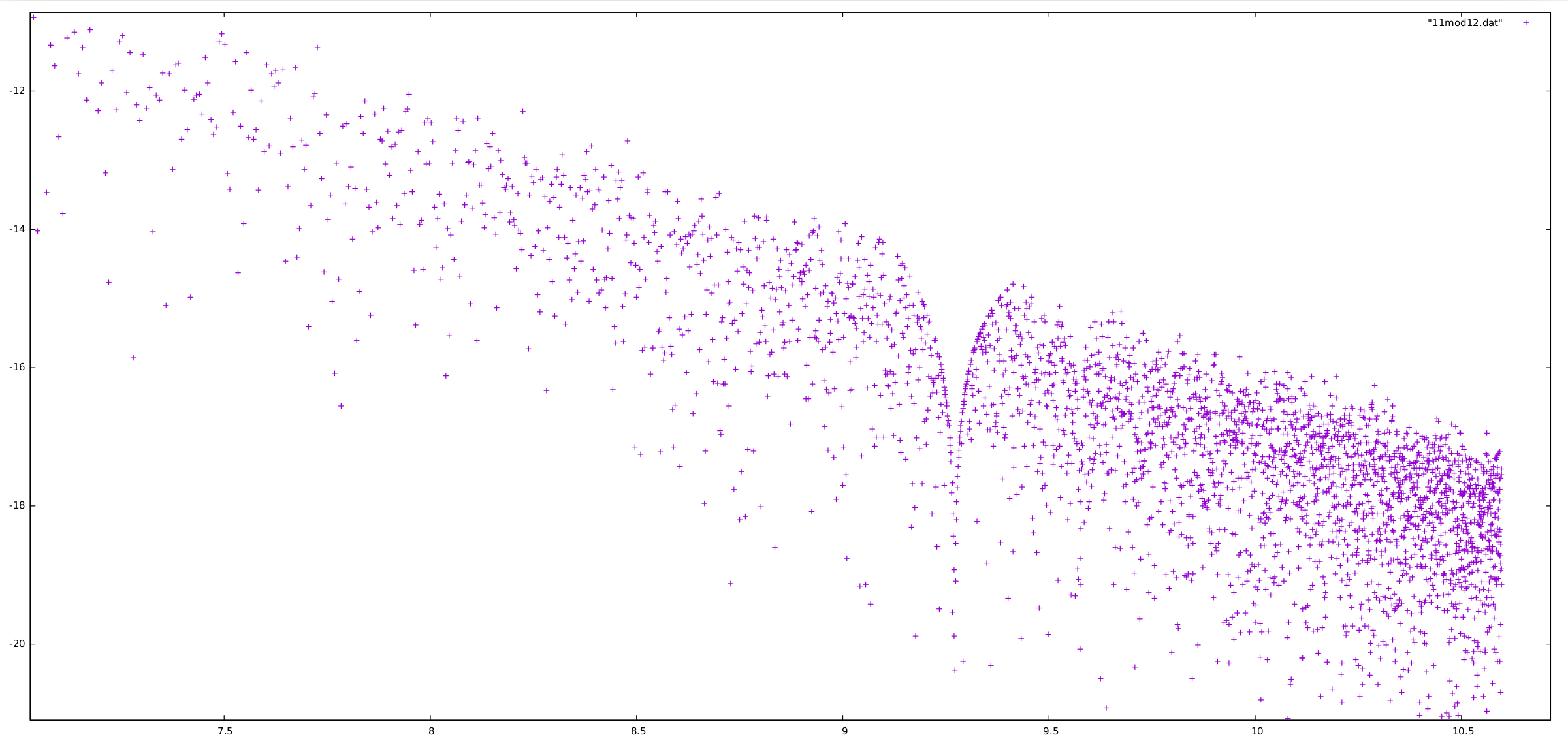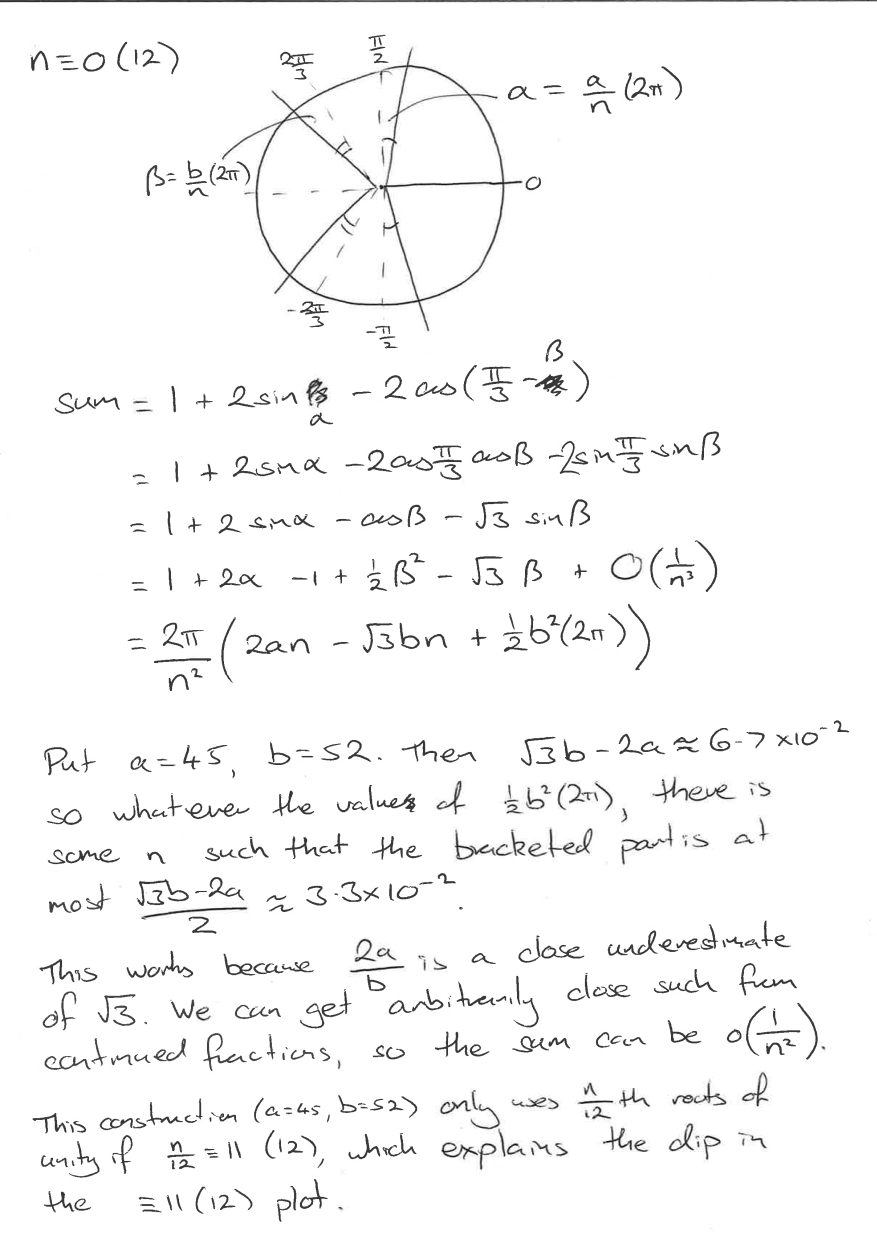Let $n$ be a large natural number, and let $z_1, \ldots, z_{10}$ be (say) ten $n^{th}$ roots of unity: $z_1^n = \ldots = z_{10}^n = 1$. Suppose that the sum $S = z_1+\ldots+z_{10}$ is non-zero. How small can $|S|$ be?
$S$ is an algebraic integer in the cyclotomic field of order $n$, so the product of all its Galois conjugates has to be a non-zero rational integer. Using the utterly crude estimate that the magnitude of a non-zero rational integer is at least one, this gives an exponential lower bound on $S$. On the other hand, standard probabilistic heuristics suggest that there should be a polynomial lower bound, such as $n^{-100}$, for $|S|$. (Certainly a volume packing argument shows that one can make $S$ as small as, say, $O(n^{-5/2})$, though it is unclear to me whether this should be close to the true bound.) Is such a bound known? Presumably one needs some algebraic number theoretic methods to attack this problem, but the only techniques I know of go through Galois theory and thus give exponentially poor bounds.
Of course, there is nothing special about the number $10$ here; one can phrase the question for any other fixed sum of roots, though the question degenerates when there are four or fewer roots to sum.


